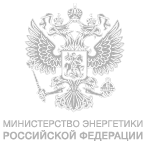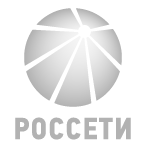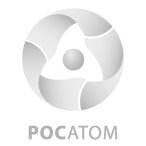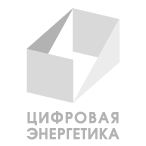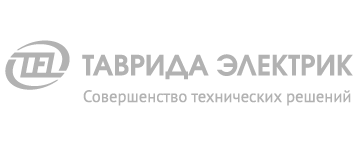Online Engineering and Technology Conference
The conference will be held in an online format from 16 to 20 November 2020 and will include technical sections, panel discussions and keynote sessions on implemented projects.
The conference events will be attended by representatives of energy companies: Rosatom, InterRAO, Rosseti, RusHydro, SO UES, Market Council, etc.
The conference will be structured around the following technical sessions:
— New Energy Sources and Flexibility
— Distributed Energy: Microgrid, Aggregators, Communities
— Hydrogen Energy and Industry Synergy
— New Market Design and New Services
— Digital Distribution Grids
— Cross-Cutting Technologies — Cyber Security
The Conference Programme provides detailed information.
Plenary session
As a part of our conference, we propose to take a well-considered step towards the formation of a community of electrical engineers who can transform electrical engineering in a non-destructive way, taking into consideration the interests of all parties involved. We invite you to join the movement.
Leader of the EnergyNet Working Group
Head of the Energy Department, LITECO Ltd
2. Ensuring the stable operation and increasing the efficiency of generator sets in the power grid with sharply varying loads by means of a power storage system. G. Nesterenko (ESS Ltd)
3. Application of ESS in remote/isolated areas. V. Vorozhev (ABIS ENERGO Ltd)
Head of the Energy Department, LITECO Ltd
General Director of Cathode Materials LLC
Head of the Energy Department, LITECO Ltd
2. Piloting a large project in parts. P. Kropotin (Energozapas Ltd)
3. Projected requirements in the transition to the widespread use of electric vehicles. I. Shkabara (Agency for Strategic Initiatives ANO)
4. Optimal management of energy storage systems. P. Vorobyov (Skolkovo Institute of Science and Technology)
5. Prospects for stationary hybrid energy storage systems. A. Usenko (InEnergy Ltd)
6. Creating a prototype of a cryogenic energy storage device and analysing the performance of industrial cryogenic energy storage devices. A. Markelov (Ecoprotech STC Ltd)
7. Prospects for the development of post-lithium electrochemical current sources. A. Abakumov (Skolkovo Institute of Science and Technology)
Head of the Energy Department, LITECO Ltd
2. Use of electricity storage devices to optimise the cost of supplying electric power to industrial consumers. A. Neshta (Atomenergopromsbyt JSC)
3. A fast-charging system for electric vehicles with a capacity of over 20 kW. S. Shumilin (Milandr ICC JSC)
4. Production of energy storage devices in Novosibirsk. B. Ablazov (LITECO Ltd )
5. Application of ESS in distribution networks of IDGC of Centre. D. Rybnikov (IDGC of Centre PJSC)
There is a particular demand for engineering solutions that enable the rapid integration of microgrids, their optimal management and the formation of energy communities of generators and consumers in the AEC, local electricity markets and energy flexibility for them. Technological solutions to these problems will be the subject of reports at the session.
Head of Analytical Division of EnergyNet Infrastructure Centre
2. Minigrid is a self-balancing local energy system for the energy community. A. Fishov (FSBEI HE NSTU)
3. Optimal energy source management and flexibility in the active energy complexes. N. Shubin (RTSoft JSC)
4. The digital twin of the technocenosis with respect to electricity consumption. V. Gnatyuk (FSBEI HE KSTU)
5. BlaBlaWatt — power generation for the Day of Judgment. M. Pavlichenko (FSBEI HE USURT)
The subject of the panel discussion will be approaches and opportunities for the implementation of MIC based on modern digital energy technologies, including platform, transactional, multi-agency technologies and power conversion equipment.
In Russia, the practice of managing consumer demand in the retail market has been actively developing since 2019 as part of a pilot project; a target model of the relevant market is under preparation, and the possibility of widespread application of ESSs connected to power grids will open up in the near future. The Russian market needs technological solutions to make practices related to energy flexibility as mass and effective as possible, to integrate small distributed consumers and potential owners of ESSs, including electric vehicles, through the intellectualisation of management and digital technologies. The engineering capabilities to solve these problems will be the subject of reports at the session.
Head of Analytical Division of EnergyNet Infrastructure Centre
PhD in economics, Head of Division, EnergyNet Infrastructure Centre
2. Distributed management of energy flexibility in isolated power grids. I. Ozyornykh (FSAEI HE MIPT Research and Technology Centre for Autonomous Energy)
3. Ensuring energy transactions between distributed energy facilities. A. Voloshin (FSBEI HE MPEI NTI)
4. New principles of frequency shaping control. P. Vorobyov (Skolkovo Institute of Science and Technology)
5. Sliding modes in the management of electricity flows. Yu. Skuryatin (FSBEI HE BSTU)
Head of Analytical Division of EnergyNet Infrastructure Centre
Head of Analytical Division of EnergyNet Infrastructure Centre
2. The autonomous hybrid power system in the village of Laborovaya with diesel power generation based on variable frequency diesel engines and heat energy storages. Yu. Vasilyev (FSAEI HE MIPT Research and Technology Centre for Autonomous Energy)
Business processes and market mechanisms must not only keep up with new technologies but also work in a feedback mode, creating a demand for new technological solutions. This relationship will be the focus of the session.
Deputy Chairman of the Board of NP Market Council Association
2. Differentiated calculation of regimes and prices on electricity markets. V. Makeechev (independent expert)
3. Energy-cost distribution model and its application in power grids. A. Egorov (FSAEI HE B.N. Yeltsin Ural Federal University)
4. Peer-to-peer electricity market in a microgrid. A. Voloshin (FSBEI HE MPEI NTI)
5. Potential for the application of storage systems on electricity markets. V. Berezovsky, S. Gafarov (NP Market Council Association)
6. Economic prerequisites for the operation of distributed power generation. Proactive management of distributed power generation. Current conditions and promising market changes. D. Senchuk (NP Market Council Association)
The panel experts will try to identify how energy markets are transforming under the influence of new technologies.
Introduction of new environmental digital assets arising from the low-carbon and renewable energy sources power generation. Increasing the efficiency of production and consumption by small market players through cooperation and coordination of activities, their involvement in the management of the energy system based on information and communication technologies. The session will focus on these and other new instruments, goods and services on energy markets.
President of RUSENERGOSBYT Ltd
Deputy Chairman of the Board of NP Market Council Association
Head of Audit and Technological Expertise Department of NP Market Council Association
2. The practice of using certificates of origin for electricity following the example of the International REC Standard system. T. Lanshina (Goal Number Seven Association)
3. Origin of electricity and the carbon footprint of Russian products. A. Spirin (EN+ GROUP IC PJSC)
4. Blockchain as a digital energy tool by the example of the system for the circulation of electricity origin certificates S. Anfimov (NP Market Council Association)
5. Advantages of using block-chains in systems for the circulation of electricity origin certificates and for the organisation of interaction between demand aggregators and consumers. R. Gabitov (Eliot Ltd (Onder))
6. Digital service for predicting the feeder's power consumption through in-depth neural network training methods. S. Petrova
7. The practice of applying the blockchain in the European power industry. Representative of EDF, France (pending approval)
Head of Audit and Technological Expertise Department of NP Market Council Association
2. A decentralised system of interaction between electricity retail market participants based on the Waves Enterprise blockchain platform. Representative of Waves Enterprise
3. Implementation of low-voltage network monitoring through a service-oriented approach. K. Netreba (Aidis Technologies Ltd)
Leader of the Reliable and Flexible Networks segment, EnergyNet NTI Working Group
2. Application of CIM to solve the problems of the power grid complex. V. Chaikin (ROSSETI Scientific and Technical Centre (FTC JSC))
3. Possibilities of applying digital twins to digital substations (vision). V. Matison (EKRA R&D Company)
4. Reliability calculations based on a simulation of the accident response process. D. Belosheikin (Smart Power Grids Ltd)
5. System of electrical power transmission management using BigData. O. Turkina (ROSSETI Scientific and Technical Centre (FTC JSC))
Head of Digital Technologies and IT Solutions Department, ROSSETI Scientific and Technical Centre (FTC JSC)
Head of Digital Technologies and IT Solutions Department, ROSSETI Scientific and Technical Centre (FTC JSC)
Head of Digital Technologies and IT Solutions Department, ROSSETI Scientific and Technical Centre (FTC JSC)
2. Designing digital substations according to IEC61850 from theory to practice. V. Chaikin (FTC JSC)
3. Application of open ontologies for design and operation of digital substations. A. Voloshin (FSBEI HE MPEI NTI)
4. Life cycle support system for design, acceptance and operation of digital substations. A. Shemetov (FGC UES PJSC), A. Anoshin (Tekvel Development Ltd)
Leader of the Reliable and Flexible Networks segment, EnergyNet NTI Working Group
2. Big data for transmission management. Rosseti Lenenergo PJSC
3. Digital PDA, PLUG & PLAY ENGINEERING Ltd
4. Salut 110 kV DSS IDGC of Centre PJSC
At the first session, leading experts in their fields will talk about the status of developments in the production, transportation and use of green, blue and yellow hydrogen in the world and in Russia. You will find out whether hydrogen can be obtained from hydrocarbons not only without emitting CO2 but also without its burial. Are there Russian electrolysis and fuel cell technologies that require cooperation with the West?
Head of the NTI Competence Centre in the field of Technologies for Creating New and Portable Energy Sources, RAS Institute of Problems of Chemical Physics
2. Modern technologies in electrolysis. V. Kuleshov (FSBEI HE MPEI NTI)
3. Fuel elements in energy and transportation. Yu. Dobrovolsky (RAS Institute of Problems of Chemical Physics)
4. Hydrogen economy in the world. A. Kashin (SC InEnergy JSC)
Chief Designer, Krylov State Research Centre
Yury Dobrovolsky
Head of the NTI Competence Centre in the field of Technologies for creating new and portable energy sources, RAS Institute of Problems of Chemical Physics
Head of the project office Hydrogen Energy of VNIIAES JSC
Anton Maksimov
Director of Institute of Petrochemical Synthesis, RAS
Head of the NTI Competence Centre in the field of Technologies for Creating New and Portable Energy Sources, RAS Institute of Problems of Chemical Physics
Aleksandr Ishkov — Deputy Head of Department — Head of Division of Gazprom PJSC
Anton Moskvin — Vice President for Marketing and Business Development of Rusatom Overseas JSC
Kilian Crone — Team leader, International cooperation hydrogen and powerfuels
Vice President for Marketing and Business Development, Rusatom Overseas JSC
2. Site of FSBEI HE Samara State Technical University. A. Pimenov
3. Site of FRC Krylov State Research Centre. I. Landgraf
4. Distributed Infrastructure Centre of Hydrogen Technologies. A. Golodnitsky (InEnergy Ltd), Yu. Dobrovolsky (RAS Institute of Problems of Chemical Physics)
Head of Protection of APCS and CII, Jet Infosystems JSC
2. International regulatory framework and decisions of international committees in the area of energy cybersecurity. A. Gurevich (IC Sibintek Ltd)
3. Staffing support for the IS process control systems. Development of an educational and professional standard for a specialist in the field of IS process control systems in the fuel and energy sector. M. Smirnov (InfoWatch JSC)
4. Open ontology of electricity cybersecurity. D. Pravikov (Research and Academic Centre for New Information and Analytical Technologies, FSAEI HE Gubkin Russian State University of Oil and Gas)
5. An industry cyber-attacks monitoring and response centre in the power industry. L. Palei (System Operator of United Power System JSC), A. Chugunov (Inter RAO PJSC)
Head of Industrial CyberSecurity, Kaspersky Laboratory JSC
Head of Protection of APCS and CII, Jet Infosystems JSC
Head of Industrial CyberSecurity, Kaspersky Laboratory JSC
2. An example of an IS expert system based on the ontological model. V. Karantaev (FSBEI HE MPEI NTI)
3. Information protection in the intelligent electric power metering system. I. Kostromin (MILANDR ICC JSC)
4. Application of AI methods for optimal synthesis of design solutions using the example of power substation control systems. N. Grachyova (FSBEI HE MPEI NTI)
- Moscow Energy Institute (Technical University)
- Higher School of Economics
- Novosibirsk State Technical University
Deputy Director of the Institute for the Economics and Regulation of Infrastructure Industries, National Research University Higher School of Economics
"People make all the difference" — this thesis has been relevant over the years, and, rather, it becomes even more prominent in times of technological transformation. It is obvious that today only a limited number of universities in our country are ready to train personnel for the future power industry. A bold idea emerged in the depths of EnergyNet — to create a web-based form of training for students and teachers on the principles of University 20.35. Will it be possible to reach an agreement? Let's try it!
Leader of the Energy Working Group
Aleksandr Voloshin
Head of the Department of Relay Protection and Automation of Power Systems of FSBEI HE MPEI NTI.
Vladislav Vorotnitsky
Leader of the Reliable and Flexible Networks segment, EnergyNet Technology Working Group
Svetlana Petrova
Head of the Basic Department of Intelligent Power Grids
Plenary session
Deputy Director of the Institute for the Economics and Regulation of Infrastructure Industries, National Research University Higher School of Economics
2. Scientific and Educational Centre for Digital Technologies in the Power Industry. Yu. Kazantsev (FSBEI HE NSTU)
3. Smart Power Supply Grids (EnergyNet) Master's degree network programme. S. Petrova
4. A draft industry platform for digital skills development based on the Digital Energy Association. A. Korneeva (Inter RAO PJSC)
Ministry of Energy of Russia
Aleksei Belokrys — Project Manager, Department of New Technology Expertise, NP Market Council Association
Kilian Crone — Team leader, International cooperation hydrogen and powerfuels
Daniil Belosheikin — Smart Power Grids Ltd
Vladislav Berezovsky — Expert of the Department of New Technology Expertise, NP Market Council Association
Ilya Burdin — Leading expert of EnergyNet Infrastructure Centre, EnergyNet IC, North-West CSR
Tatyana Vaskovskaya — Head of the Analytical Systems Development Department, ATS JSC
Pyotr Vorobyov — Deputy Director of the Energy Technology Centre, Skolkovo Institute of Science and Technology
Vasily Vorozhev — General Director, ABIS-ENERGO Ltd.
Rustam Gabitov — Deputy General Director, Eliot Ltd (Onder)
Sergei Gafarov — Project Manager of the Legal Management Project, NP Market Council Association
Grigory Gladkovsky — Deputy Director of the Technical Policy Department, Rosseti PJSC
Viktor Gnatyuk — Professor, FSBEI HE KSTU
Andrei Golodnitsky — Deputy General Director — Chief Designer, InEnergy Ltd
Natalya Grachyova — FSBEI HE MPEI NTI
Aleksei Gurevich — Deputy Head of Department, IC SIBINTEK Ltd
Kseniya Datsko — General Director, Scientific and Technical Centre of Unified Power System JSC
Aleksandr Egorov — Associate Professor, Department of Automated Electrical Systems, Ural Power Engineering Institute, FSAEI HE Ural Federal University named after the first President of Russia B.N. Yeltsin
Nikolai Zaitsev — AEC Project Manager, Head of Department, Scientific and Technical Centre of Unified Power System JSC
Aleksandr Ishkov — Deputy Head of Department — Head of Division of Gazprom PJSC
Vladimir Karantaev — Expert of the Competence Centre, EnergyNet NTI Energy, FSBEI HE MPEI NTI
Aleksei Kashin — Chairman of the Board of Directors, InEnergy Group of Companies
Vladimir Kononenko — Academic advisor, FTC JSC
Igor Kostromin — Head of Embedded Trust Systems Department, Milandr ICC JSC
Pyotr Kropotin — Deputy General Director, Energozapas Ltd
Aleksei Kulapin — General Director, FSBI Russian Energy Agency
Vladimir Kuleshov — Associate Professor, Department of Chemistry and Electrochemical Energy, FSBEI HE MPEI NTI
Tatyana Lanshina — General Director and co-founder of the Goal Number Seven Association
Vasily Makeechev — Independent expert
Aleksei Markelov — Chief Process Engineer, Limited Liability Company Ecopromtech Science and Technology Centre and Experimental Design Bureau of Precision Mechanics Ltd
Vladimir Matison — Deputy Technical Director for Digitalisation of Electric Power Industry, EKRA R&D Company
Gleb Nesterenko — Engineer, Energy Storage Systems Ltd
Kirill Netreba — General Director, Aidis Technologies Ltd
Aleksei Neshta — Director of the project office, Atomenergopromsbyt JSC
Maksim Nikandrov — Director of Intelligent Grids Ltd
Evgeny Novikov — Head of the Information Security Department, Russian Ministry of Energy
Igor Ozyornykh — Chief Designer, FSAEI HE MIPT Research and Technology Centre for Autonomous Energy
Svetlana Petrova — Head of the Basic Department of Intelligent Energy Supply Networks
Lev Palei — Head of Department of the Information Security Service, System Operator of United Power System JSC
Andrei Pimenov — Vice-Rector of FSAEI HE SamSTU
Dmitry Pravikov — Director of Research and Academic Centre for New Information and Analytical Technologies, FSAEI HE Gubkin Russian State University of Oil and Gas
Mikhail Pavlichenko — Senior lector at FSBEI HE USURT, Director of DDK Ltd
Dmitry Rybnikov — Acting Head of the Directorate for Innovation and Import Substitution, IDGC of Centre PJSC
Dmitry Senchuk — Senior Expert of the Department of New Technology Expertise, NP Market Council Association
Yury Skuryatin — Assistant professor, Institute of Energy, FSBEI HE BSTU
Mikhail Smirnov — Director of the Expert and Analytical Centre, InfoWatch JSC
Aleksei Spirin — Director of the Department for Environmental and Climate Risk Management, EN+ GROUP IC PJSC
Olga Turkina — Deputy General Director for Technical Policy, ROSSETI Scientific and Technical Centre (FTC JSC)
Andrei Usenko — Head of Energy Solutions, InEnergy Ltd
Aleksandr Fishov — Professor, FSBEI HE NSTU
Andrei Shemetov — Deputy Head of the Relay Protection, Metrology and Automatic Process Control Department, FGC UES PJSC
Ilya Shkabara — Expert in the field of Entrepreneurship and Technology, Agency for Strategic Initiatives ANO
Nikolai Shubin — Chief Expert, RTSoft JSC
Sergei Shumilin — Deputy Director General for Science, Milandr ICC JSC
Aleksei Chugunov — Head of the Information Security Department, Inter RAO PJSC
Andrei Yakovlev — Acting Rector of FSAEI HE National Research Tomsk Polytechnic University
Representative of EDF, France
Representative of Waves Enterprise
Authors who wish to draw special attention to their report may submit an abstract (thesis) of the report to the Technical Committee. Abstracts will be posted on the Conference Programme page, with a link to the relevant report.
Authors who wish their papers to be published in the conference book of reports should also send the text of the report (article).
Authors whose papers have not been included in the main conference programme may send the texts of their papers for publication in a book of reports or a video presentation of the paper for posting on energynet.ru (post-session). Sending texts of reports or video presentations does not guarantee inclusion in the book or post-session.
In order to be able to participate as a speaker at the conference, the following must be made available:
1. Webcam
2. Microphone
3. At least 1 Mbps broadband Internet access
Requirements for documents are set out below:
— Requirements for abstracts (thesis). The deadline for submission is 6 November 2020 at the latest.
— Requirements for demonstration materials. The deadline for submission is 11 November 2020 at the latest.
— Requirements for reports (articles). The deadline for submission is 20 November 2020 at the latest.
Nesterenko G.B. (LLC «Energy Storage Systems»)
Generators stability and efficiency enhancement in power system with abruptly variable load by use of electrical energy storage system
Materials and methods. The proposed research offers the application of electrical energy storage system (EESS) ensuring smooth change of generators power. The research includes the following procedures: the analysis of measurements in the oil field power system, the determination of the optimal power system configuration based on gas engine generators and EESS, the development of EESS control algorithm, choosing EESS parameters, development, manufacturing and field testing of 1200 kVA 400 kWh EESS. The EESS has been tested in the off-grid power system which included the gas engine power plant with a power of 2250 kW.
Results. The EESS control algorithm ensuring steady change of generators power has been developed. The EESS parameters have been selected for the oil field power system. The simulation results have shown that the application of EESS makes it possible to reduce the number of generators required for sustainable operation of the power system with two drill rigs from 6 to 3. The results of the 1200 kVA 400 kWh EESS test in the off-grid power system have shown that the EESS successfully ensures sustainable and fault-free operation of generators.
Conclusions. The simulation results and field tests are evidence in favor of the appropriateness of the EESS application for providing smooth power change for generators operating in power system with abruptly variable load. The EESS ensures generators stability and enhances their efficiency. This reduces specific fuel consumption and increases generators running life due to increased installed capacity utilization factor and optimal mode for generators operation.
Prototyping cryogenic energy storage (CES) and technical and economic indices analysis for industrial CES
The difference between CES, developed by the project team, from foreign analogues in the use of a wider range of liquefaction and generation cycles, allowing you to choose the optimal technical solution depending on the purpose of using the energy storage device. Creation and testing product engineering sample (prototype) stage and CES engineering and construction design procedures verification has been completed. A number of business cases have been formulated based on developed CES computer model.
CES for exhaust gas heat recovery from peak or stationary gas turbine units (GTU) is a hybrid power plant. It is a new product in the power control and demand management equipment market. CES for GTU solves the problem of reducing emissions when burning traditional fuels, since it allows 1.5 times to increase the generated power of a gas turbine without using additional fuel. Such systems round-trip efficiency is 70-90%. CES with compression thermal energy storage (or third-party renewable heat source) has zero emissions, refers to RES, solves the problem of increasing the share of "green" generating facilities in the energy system, the efficiency can reach 70%.CES with indirect heating by the calorific value of the fuel can generate about 8.5 kW per 1 m3/h of natural gas and has round-trip efficiency about 130%.
Technical and economic assessments of industrial systems have been carried out. The most cost-effective scenarios for their use have been identified, taking into account potential sources of payback: additional revenue from the difference between the day and night tariffs, a capacity sale agreement for RES, competitive power take-off.
Further implementation of the project will allow to bring new products to equipment market for peak generation and demand management, which reduce emissions when using traditional fuels or are RES.
Digital service for predicting the power consumption of a feeder using deep learning methods of a neural network
It is assumed that the sensor data presented in the form of a time series describing the evolution of the feeder energy consumption cannot be approximated by a simple analytical expression and do not have a periodicity. Such a time series can be viewed as a stochastic process that can only be described in terms of a probability distribution.
Any continuously evaluated signal can be expressed as a directly time-varying function of the signal itself, other signals, environment, and noise.
The function describing the signal is likely to be extremely complex and non-linear. Environment variables can be unknown and not measurable. For this reason, it is more efficient to determine the invariant properties of the signal, and on this basis to make predictions.
In order to understand what is present in the signal data, we must apply several filters to them and highlight trends. Then remove the trends from the data and bring the signal to a stationary form. As a result, there is noise that we feed to train the LSTM neural network model. In this approach, to predict the future values of the series, we can use the previous values of the series and describe this process as autoregression. That is, at each time step of the input sequence, the LSTM network learns to predict the value of the next time step. To the obtained forecast, we add trends and, as a result, we get a forecast of the energy consumption of a particular feeder. We examine the signal in both forward and backward directions. And let's explore the dependencies between the elements. And both of these dependencies, both in the forward and in the opposite direction, give a good result. The network is trained using the backpropagation method. Error propagation begins from the very last layer in which the function that counts the error is protected. The element that got around the problem of fading and bursting gradients is a connection that stretches through the entire network and has no nonlinearity (since only addition and multiplication operations are used).
Network Master's Program "Intelligent Power Grids" (Energynet)
The network educational program "Intelligent Power Grids" was developed taking into influence the level and characteristics of the resource provision of organizations participating in the program.
The main idea of the program is to provide students with the opportunity to synthesize project-based learning and research work into a concrete practical result (final qualifying work, patent, employment).
To implement the idea, students must participate in the project activities of an industrial partner and expand the options for educational track.
The first condition is implemented in the following way: the industrial partner has a list of topical areas and projects within which a master's student can conduct his scientific research. It is also possible to perform individual tasks for real production projects, accumulating practical experience.
The specialization and student’s set of competencies are based on the tasks of research and development. To expand the possibilities of training, the student is given the right to independently select the module (discipline) he or she needs, compensating for the lack of competence. Modules can be implemented on the basis of virtual academic mobility (interuniversity course catalogs in online format) or as continuing education courses. The basis for the offset of the results and inclusion in the individual plan, in this case, may be a certificate or certificate that the student receives at the end of the course. This allows diversifying the educational program and implementing it at the junction of various areas of professional activity.
This is a master's program that links the formal education model, new educational technologies and an industrial partner. Such interaction activates fundamental developments, develops into joint research and the implementation of their results into real production. Participation in this process of students forms in them the qualities necessary for innovative activity, as well as professional activity at the junction of various areas of science and technology.
Kostromin Igor (JSC ICC Milandr)
Implementation of the cryptographic security in smart power meters
Main features of this concept is transferring control of the meters from citizens to supply companies, provide information security and increase rate of Russian electronic components within meters to 90%.
There was prepared some legal documents to support this concept: national standard of the interchange protocol with smart power meters (GOST R 58940-2020), guidelines how to implement domestic cryptography within this standard (MR 26.4.003-2019) and requirements to hardware that should be used for that purposes.
In Russia companies should have resolution from Federal Security Service to implement cryptographic features within their products. Most of smart meters manufactures has no such resolution and will be forced to use embedded security modules.
In 2020 new smart meter integrated circuit (IC) was presented by Milandr ICC JSC. This IC combines microcontroller with embedded analogue electricity metering system, DSP module and special features to fit all new government’s requirements.
Domestic RISC-V core remove foreign licensing risks. Active protective mesh grants security from probing access to transistors and bus layers. Number of the special sensors continually monitors power, clocking and light that protects against invasive attacks. Against side channel attacks hardware provides noise generators, frequency swing, random signals at active mesh and number of cryptographic coprocessors. The built-in true random number generator improves quality of randomized data (such as session keys). Special long-term key storage with guaranteed data lost at any tamping attempt should be a serious trouble for hackers. Security software is under negotiation with special service now.
Power metering in Russia will become huge and predictable market within next decade. Domestic hardware will be become available as soon as in 2021.
Yu. Kazantsev (Novosibirsk State Technical University)
The science and education centre for digital technologies in the energy sector
P.Vorobev (Skoltech)
Optimal operating strategies for energy storage systems
Taking the effects of degradation and battery efficiency into account we have developed strategies for optimal battery charge and discharge during grid services, such as peak shaving. The charging strategies appear to be rather complex, not corresponding to a simple constant current charge immediately after the grid service is provided. Moreover, they have to be changed during the battery lifetime to get more optimal operation. For instance, for a one peak per day case, the charging curve start very flat gradually rising towards the time of the scheduled full charge. This can be understood from the point of view of the battery life saving: degradation increases with the increase of the battery SoC, so it makes sense to keep SoC at minimum for as long as possible. Towards the end of the battery life, efficiency over a charge-discharge cycle becomes dominant, and the charging curve becomes more smooth over the whole period of time, available for charging, thus minimizing the losses.
For the two cycles per day operations, the charging strategies are simpler, but the optimal battery sizing is non-trivial — it appears to be economically feasible to significantly oversize the battery, so that by having the decreased relative DoD one extends the battery lifetime.
P.Vorobev (Skoltech)
In the present work we show, that the "virtual inertia" approach is especially ineffective, often leading to excessive control efforts during the frequency transients. Instead of the simultaneous power discharge to the grid in response to a sudden imbalance, energy storage units engage in power oscillations against each other, which is exactly caused by the virtual inertia setting. Moreover, the true emulation of the inertial behavior is not really possible by grid-following inverters — such control is a-causal. This difficulty can be overcome by using grid-forming modes of inverter control, but the control performance stays ineffective even for this case.
As an alternative to conventional approaches, we propose a new control technique — namely, frequency shaping control which allows to achieve the optimal combined response from a system with traditional generators and energy storage units. Our method allows to effectively reduce the system frequency dynamic response to a first order one, thus eliminating any oscillatory behavior, and the, so-called, frequency Nadir — a major problem in low inertia power systems. Besides improvement of the transient response, our method allows to completely rethink the frequency security assessment procedure — it can now be done by using simple algebraic calculations, rather than running numerically costly dynamic simulations. This can be especially valuable for application in microgrids, where simulation of every possible configuration/contingency can be infeasible.








